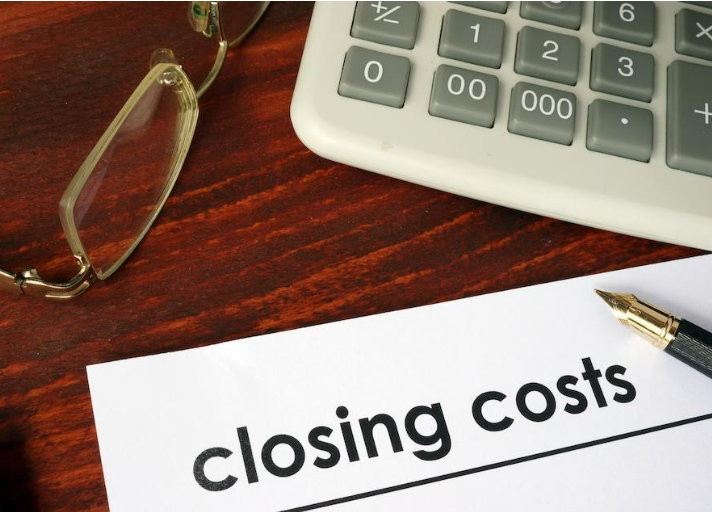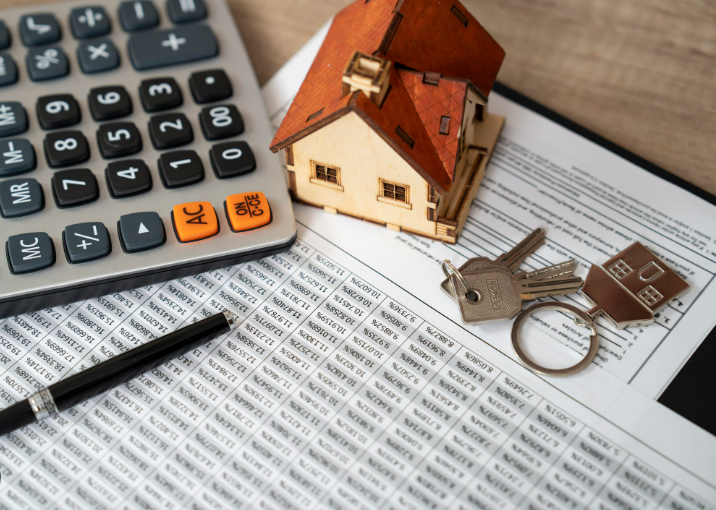How Much Should I Budget for Closing Costs and What Are They?

Whether you’re a novice homebuyer or experienced in the real estate market, purchasing a home marks a significant milestone. While saving for a down payment is a key focus, it’s crucial not to overlook closing costs, which can substantially affect the total expense of acquiring a property. In this guide, we’ll delve into the fundamentals of closing costs to ensure you’re well-prepared for your home-buying adventure.
What Are Closing Costs for Homebuyers?
Closing costs encompass the various fees, taxes, and administrative expenses associated with the sale of a home, which are typically divided between the buyer and seller. Typically ranging from 2% to 6% of the mortgage loan, closing costs can vary widely. For instance, if you’re estimating closing costs for a $450,000 loan, you could expect to pay between $9,000 and $27,000. Lenders are mandated to provide a closing disclosure outlining all associated costs at least three business days before the settlement date.
How Much Are Closing Costs?
The amount you pay in closing costs largely depends on your location, with rising home prices often corresponding to higher closing costs. According to a study by Assurance IQ, the national average for closing costs is $4,243. States like California, New Jersey, and New York tend to have the highest average closing costs, exceeding $7,500 each. Conversely, states such as Alabama, Arkansas, South Carolina, and West Virginia typically have the lowest average closing costs, falling below $2,500.
The Breakdown: Closing Costs for Buyers
- Application Fee: $300-$450 This fee covers the cost of applying for a mortgage and varies by lender.
- Escrow Funds: Cost Varies Escrow covers your yearly tax and insurance costs. Your mortgage lender sets up an escrow account, and you deposit money into it with your mortgage payments, typically two months’ worth of tax and insurance payments.
- Home Appraisal Fee: $500-$800 This fee ensures that the loan amount doesn’t exceed the property value by assessing the home’s worth.
- Home Inspection Fee: $200-$500 While not required, a home inspection is recommended to identify any needed repairs or critical issues.
- Homeowners Insurance: Cost Varies Most lenders mandate homeowners insurance to protect against theft and damages.
- Loan Origination Fee: $15-$30 This fee processes the borrower’s loan and may include the credit report fee.
- Pest Inspection: $150 Often required by lenders, this fee covers a termite inspection report.
- Property Taxes: Cost Varies Fees paid to state and local governments yearly, depending on contract, county, and state.
- Title Insurance: 0.5%-1% of the Loan Amount Title insurance provides protection against ownership claims not found during the title search.
- Title Search Fee: $300-$500 Covers researching the property’s title history and any claims against it.
- Underwriting Fee: 0.5%-1% of the Loan Amount A separate fee for underwriting the mortgage.
- Mortgage Insurance: 1.75% of the Loan Amount (FHA Loan) For FHA loans, mortgage insurance may be paid upfront at closing.
- Discount Points: 1% per Point (Optional) Discount points are upfront payments to lower the loan’s interest rate, with one point costing 1% of the loan amount.
Other Associated Costs
While each situation varies, here are some common fees that can contribute to increased closing costs:
- Courier Fees: If documents need to be mailed to finalize the home process, the buyer typically covers this fee.
- Notary Fees: Official documents may require notarization to complete the mortgage.
- Attorney Fees: In some cases, lenders or states may require involvement of a real estate attorney to finalize the transaction, with the buyer responsible for associated fees.
- Flood Insurance: Alongside homeowners’ insurance, flood insurance is important for homes in flood-prone areas or regions susceptible to tropical storms. It may be mandatory in such areas.
Government Fees and Recording: Taxes and Paperwork to Finalize the Sale
Buyers may also be responsible for the transfer tax, which facilitates property ownership transfer. This encompasses recordation fees, known as mortgage stamps, which cover the legal recording of your property’s deed and mortgage details. The specific amount varies by location. To conclude the sale of your home and settle your closing costs, you will convene at the title company on your closing day to sign various documents, including your final loan application, the deed, the mortgage promissory note, and disclosure statements.
Does the Seller Pay any Closing Costs?
The primary expense for sellers when selling a home is real estate commissions, typically ranging from 5% to 6% of the home’s sale price. You can negotiate for the seller to cover a portion of the closing costs in your offer. This is referred to as a seller concession, which is often agreed upon if there is an oversupply of houses on the market or if the property has selling challenges. Consult your real estate agent for negotiation tactics.
Here are four tips to help you assess if negotiating a seller concession is feasible:
- Consider seller motivation: Are they relocating for work or personal reasons? This may increase their willingness to contribute to closing costs.
- Understand your real estate market: In a buyer’s market, sellers may be more open to covering some costs.
- Make a competitive offer: A reasonable offer demonstrates your serious interest in the property.
- Avoid excessive demands: Essential repairs are acceptable, but refrain from requesting extensive cosmetic or high-cost aesthetic repairs, as this may discourage sellers from covering the costs.
In certain scenarios, sellers might agree to cover some closing costs for a swift sale. Be ready to act promptly by having your mortgage pre-approval letter and down payment prepared.
How Can I Save Money on Closing Costs?
You can lower your closing costs by making a larger down payment, and negotiating with the seller is another effective method to minimize expenses. However, there are constraints on seller concessions. The allowable amount a seller can contribute is a percentage of your mortgage balance, and this varies based on the loan type you secure.
Conventional Loans
The extent to which a seller can contribute with a conventional loan hinges on your down payment.
Maximum seller concessions with a conventional loan:
| Seller Concession | Down Payment | Property Use |
| 9% | 25% | Primary residence/second home |
| 6% | 10% – 24.99% | Primary residence/second home |
| 3% | 10% or less | Primary residence |
FHA Loans
For FHA loans, sellers can contribute up to 6% of the home’s purchase price or the appraised value, whichever is lower.
VA Loans
With VA loans, sellers can provide concessions up to 4% of your total loan amount. Common concessions include covering appraisal fees, origination fees, title insurance, property taxes, and attorney fees.
Other Ways to Save on Closing Costs

- Negotiate with your lender: Lenders may waive fees for borrowers with good credit scores or large down payments.
- Roll closing costs into your loan: Though it increases your loan balance and potentially your interest rate, rolling closing costs into the loan is an option.
- Obtain family assistance: Family members can contribute, but funds must be certified as gifts, not loans.
- Skip discount points: While discount points reduce interest charges, it may not be advantageous if market rates are low.
- Explore homebuyer assistance programs: Government agencies and nonprofits offer grants and assistance for first-time buyers, alleviating closing costs and down payments.
Comparing Lenders: Finding the Best Rates and Fees
Reducing your expenses can be achieved by comparing mortgage rates and fees from various lenders. Each lender provides different rates and loan terms. When reviewing loan estimates, ensure to scrutinize the annual percentage rate, interest rate, loan terms, and any associated fees with the mortgage.
How a Larger Down Payment Can Reduce Closing Costs
The size of your home down payment can greatly affect your closing costs, which generally range from 2% to 6% of your loan amount. A larger down payment can also improve your chances of avoiding private mortgage insurance (PMI) and securing a more favorable interest rate, ultimately reducing the overall expense of buying a home.